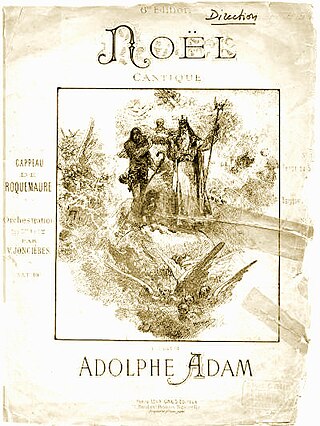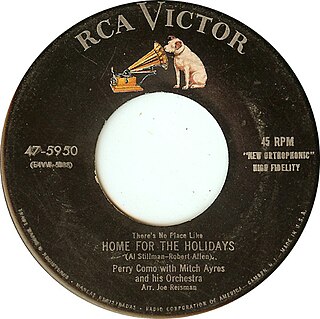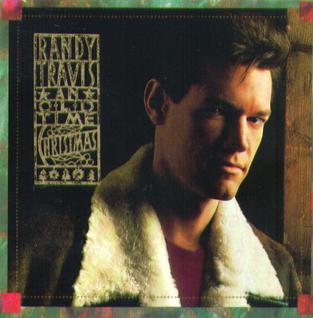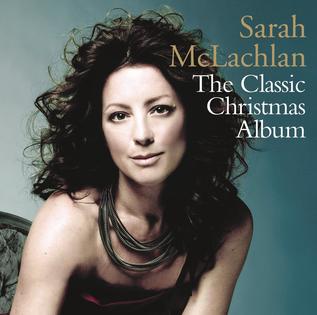
Barenaked for the Holidays is a holiday-themed studio album released by Canadian band Barenaked Ladies on October 5, 2004. The album includes Christmas and Hanukkah songs as well as "Auld Lang Syne", which is traditionally sung on New Year's Eve. There are also several songs that are simply about the winter season. The album was the first album recorded at Steven Page's studio, Fresh Baked Woods and was the first released independently by Barenaked Ladies' Desperation Records label. It was the band's first studio album for which a "naked track" was not recorded. This album achieved Gold status in Canada.
"The First Nowell", modernised as "The First Noel", is a traditional English Christmas carol with Cornish origins most likely from the early modern period, although possibly earlier. It is listed as number 682 in the Roud Folk Song Index.

"O Holy Night" is a sacred song about the night of the birth of Jesus Christ, described in the first verse as "the dear Saviour", and frequently performed as a Christmas carol. Based on the French-language poem Minuit, chrétiens, written in 1843 by poet Placide Cappeau, it was set to music by composer Adolphe Adam. The English version, with small changes to the initial melody, is by John Sullivan Dwight.
"Carol of the Bells" is a popular Christmas carol, which is based on the Ukrainian New Year's song "Shchedryk". The music for the carol comes from the song written by the Ukrainian composer Mykola Leontovych in 1914; the English-language lyrics were written in 1936 by the American composer Peter Wilhousky.

"(There's No Place Like) Home for the Holidays" is a 1954 song commonly associated with the Christmas and holiday season. The lyrics detail the joys of being in your home community during the holidays and give examples of how some people will travel long distances to be with their loved ones. The music was composed by Robert Allen, with the lyrics written by Al Stillman.
"The Christmas Song" is a Christmas song written in 1945 by Robert Wells and Mel Tormé. The Nat King Cole Trio first recorded the song in June 1946.
"Mary, Did You Know?" is a Christmas song addressing Mary, mother of Jesus, with lyrics written by Mark Lowry in 1985, and music written by Buddy Greene in 1991. It was originally recorded by Christian recording artist Michael English on his self-titled debut solo album in 1991. At the time, English and Lowry were members of the Gaither Vocal Band, and Greene was touring with them. The song reached number six on CCM Magazine's Adult Contemporary Chart. In 1993, the second singer to record the song was Country singer Kathy Mattea on her album Good News, which won the Grammy Award for Best Southern, Country or Bluegrass Gospel Album. Lowry would record the song several times himself, most notably with the Gaither Vocal Band on their 1998 Christmas album, Still the Greatest Story Ever Told.

"Christmas Eve/Sarajevo 12/24" is an instrumental medley of "God Rest Ye Merry, Gentlemen" and "Shchedryk", first released on the Savatage album Dead Winter Dead in 1995 as "Christmas Eve ." It was re-released by the Trans-Siberian Orchestra, a side project of several Savatage members, on their 1996 debut album Christmas Eve and Other Stories. The piece describes a lone cello player playing a forgotten Christmas carol in war-torn Sarajevo.

Dream a Dream is the third album by Welsh soprano Charlotte Church, released in 2000. The album is principally a collection of Christmas carols but also includes the non-Christmas title track "Dream a Dream", Church's first foray into a more pop-influenced genre, composed by James Shearman and Simon Greenaway based on the melody from Fauré's "Pavane" with lyrics by Sam Babenia.

The Christmas Sessions is the first Christmas album by American Christian rock band MercyMe. The album, produced by Brown Bannister, was released on September 27, 2005. The band, who greatly enjoy Christmas, had previously recorded Christmas songs and enjoyed the process so much that they wanted to produce a full-length album. After releasing a studio album in early 2004, they decided to take time off; they realized they could record a Christmas album over that period and began work in December 2004. The band, aiming to produce a rock-oriented album, recruited Bannister, a noted rock producer, to produce it. In addition to one original song, "Joseph's Lullaby", the album consists of covers of both modern and traditional Christmas songs that the band members had listened to when growing up.

Christmas Fantasy is the seventh album by American R&B singer Anita Baker. It is Baker's first Christmas album, and remains her last album to date. Released on October 4, 2005, by Blue Note Records, the album peaked at number 120 on the Billboard 200, and number 31 on the R&B chart.

Sounds of Christmas is the second holiday-themed album by vocalist Johnny Mathis and the first of his 11 studio projects for Mercury Records. His first yuletide effort, 1958's Merry Christmas, relied heavily on popular holiday carols and standards, but this 1963 release also included two new songs as well as covers of some lesser-known recordings by Andy Williams and Bing Crosby.

An Old Time Christmas is the fourth studio album and the first Christmas album released by country music artist Randy Travis. The album, originally released in 1989, was certified Gold by the RIAA. On November 19, 2021, Travis released a remastered deluxe edition featuring three never-before-released songs.

The Magic of Christmas is a 1960 album by Nat King Cole, arranged and conducted by Ralph Carmichael.

Joy to the World: A Bluegrass Christmas is an album by the Charlie Daniels Band. It was released on October 13, 2009. There is a deluxe edition that is a CD/DVD.

Maybe This Christmas is a holiday compilation album released in November 2002 through Nettwerk Records featuring contemporary musicians performing both classic and original Christmas songs. The album, named by Ron Sexsmith, is the first in a series of three holiday compilations released through the record label between 2002 and 2004. A portion of the proceeds from the sales of each album went to Toys for Tots, a charity supported by the United States Marine Corps. Most of the tracks exclusive to Maybe This Christmas were recorded just a few months prior to its release. The album's cover art was designed by artist Paul Frank, creator of Julius the pictured "wide-mouth monkey". Critical reception of the compilation was mixed, with reviewers often complimenting or criticizing select tracks. In the United States, the album reached a peak position of number thirty-eight on Billboard's Top Holiday Albums chart.

Holiday is a Christmas music by American guitarist Russ Freeman. The album reached #5 on Billboard's Contemporary Jazz chart.
Russ Freeman also serves as leader and frontman for the Rippingtons.

A Nancy Wilson Christmas is a 2001 studio album of Christmas music by the American singer Nancy Wilson. As well as being Wilson's first album of Christmas music, it was the first album that Wilson recorded for the Manchester Craftsmen's Guild record label, MCG Jazz.

The Classic Christmas Album is a Christmas compilation album by Canadian singer-songwriter Sarah McLachlan, released on 2 October 2015 by Legacy Recordings. It includes all the songs from 2006's Wintersong plus five other Christmas tunes.

















